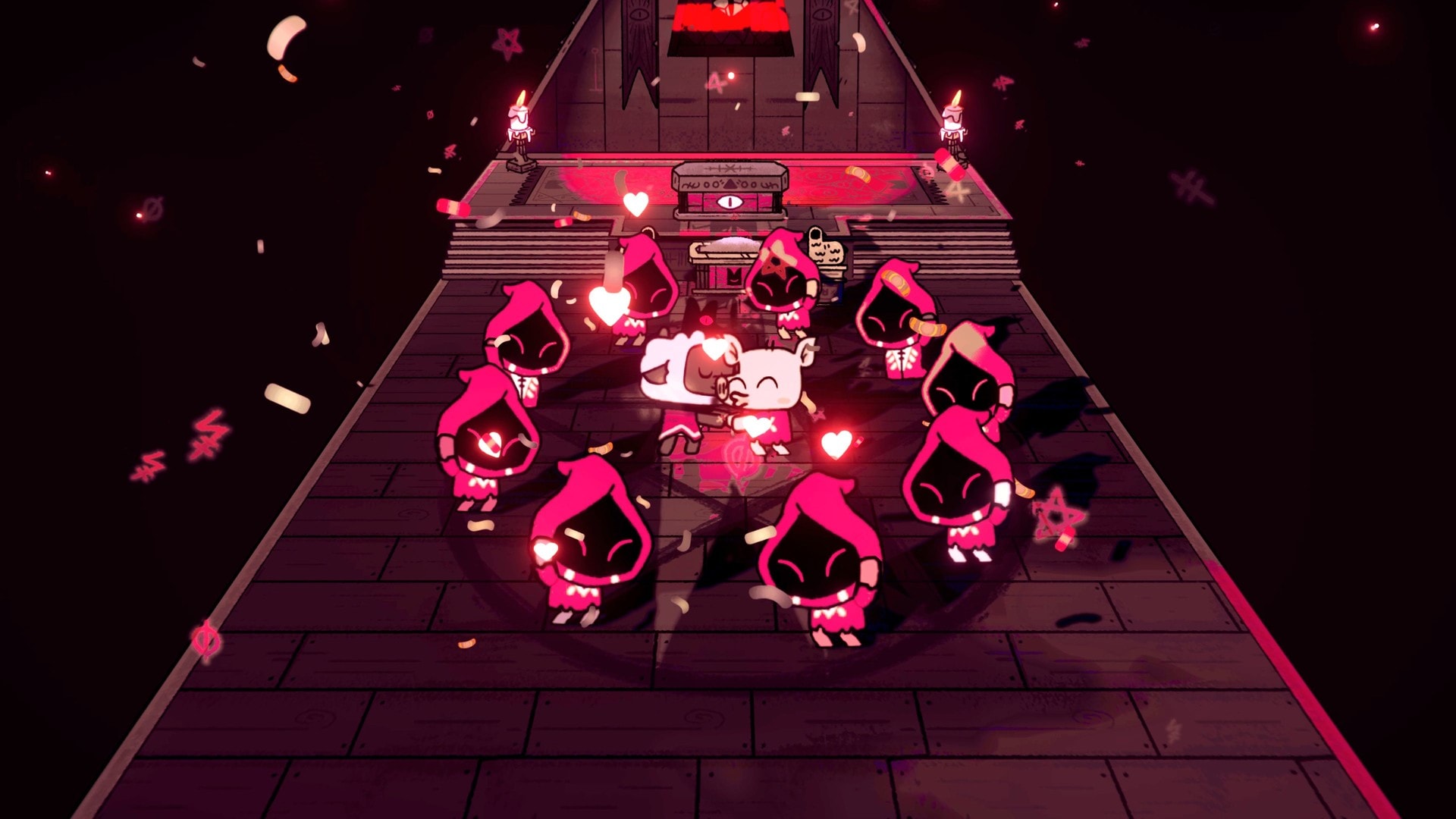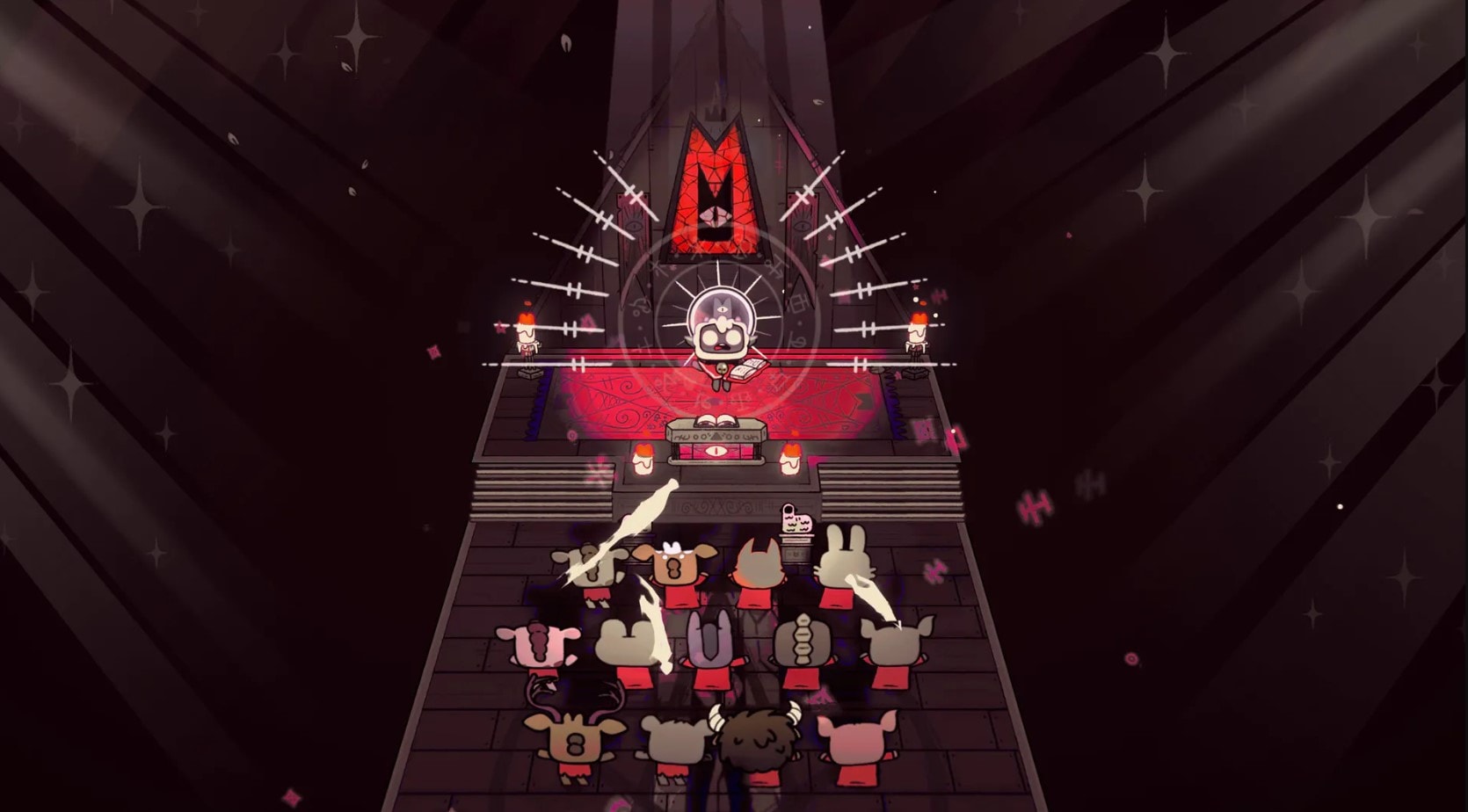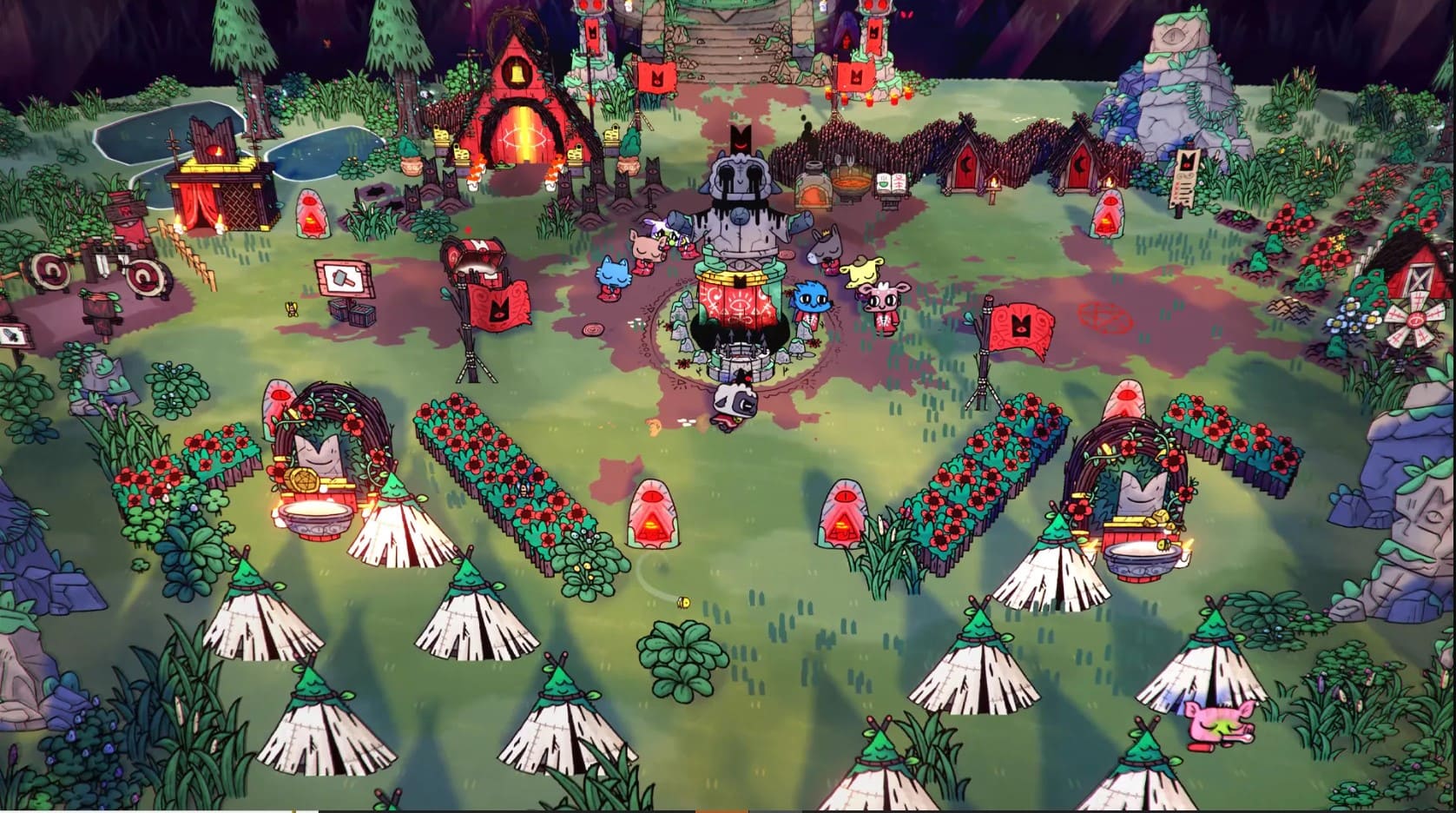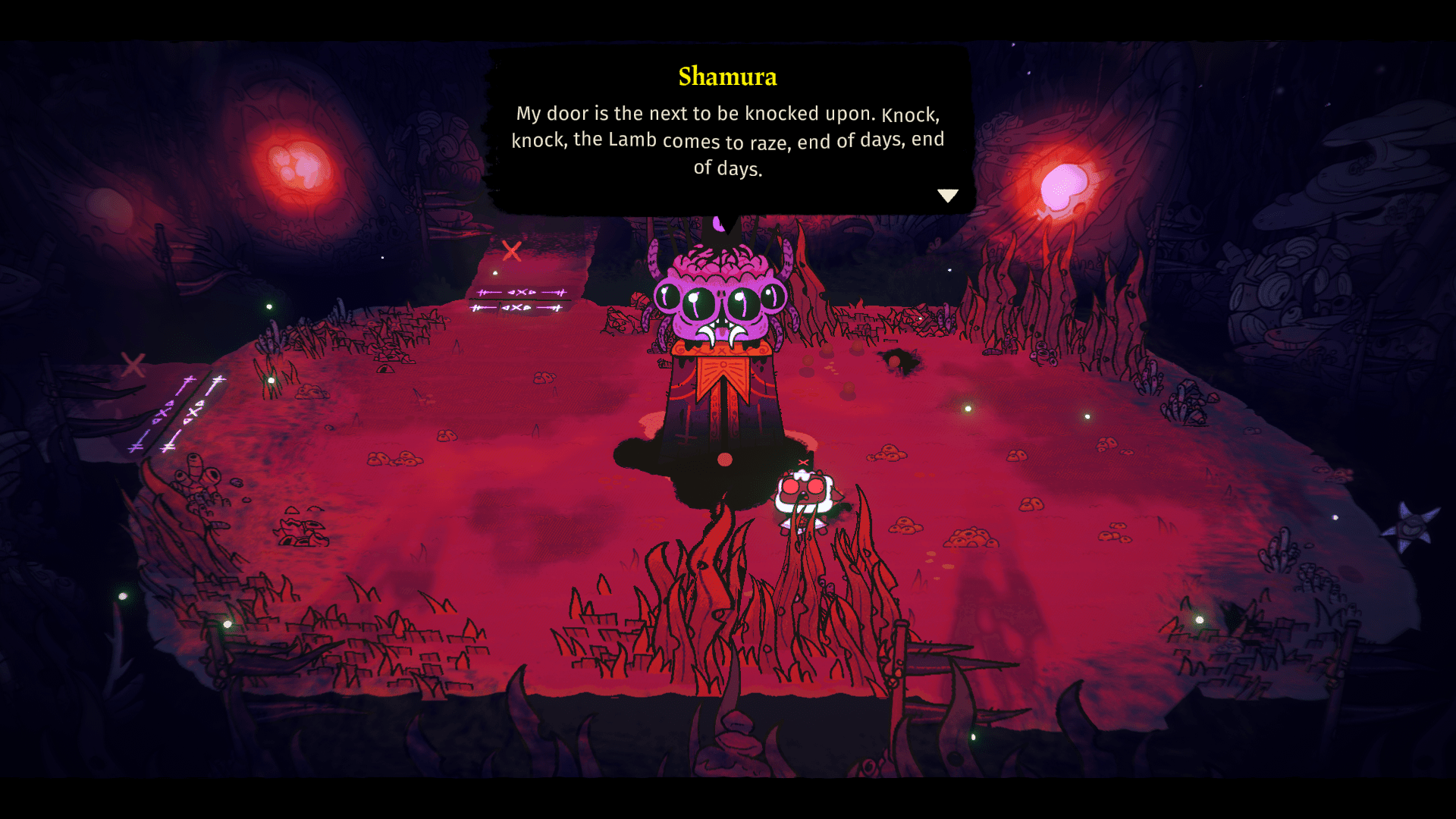
Cult of the Lamb wanted me to exploit my followers, instead they became my found family
This article contains story spoilers for Cult of the Lamb.
Massive Monster’s Cult of the Lamb is largely focused on time management and sacrifice. The god your character serves is ruthless and willing to do whatever it takes to get what he wants. As explained in my review, he expects the same of you. Your followers in Cult of the Lamb are meant to be fools and tools, nothing more. But in very un-vessel like behavior, they did become more than that to me.
Cults in real life are predatory. They seek out people who are lonely, scared, insecure, and give them a feeling of safety and belonging with the express intent of taking advantage of that. Cult of the Lamb is no different, mechanically. Your benefactor, The One Who Waits, encourages you to use and abuse your followers in any way you see fit to reach the ultimate goal of freeing him. Their faith powers your ability, and you can sacrifice them ritually to gain even more. They’re one more resource alongside gold and wood and stone.

But despite my best efforts, I just couldn’t see my cultists this way. We were all trash, all outcasts who were tossed away or offered up for slaughter. In a world where I had managed to grab life-changing power through pure chance, I couldn’t look at those who were just like me as lesser. Before them, I was alone, an obstacle to the status quo’s inertia. But together, we could be a force of nature.
So instead of being the cult leader Cult of the Lamb wanted, I worked to be the one my followers needed. I chose rituals and edicts that would benefit them, giving them extra money or a day-long vacation free of their usual daily labor. I sought out the ingredients for higher quality meals and found the seeds to keep growing them in our compound so they’d always be on hand when people got hungry. I focused on building them better sleeping arrangements and upgrading my field hospital to immediately care for anyone who fell ill. As the game progressed, money stopped being an issue, so I made it a point to shell out for any follower I found in Helob the spider’s hungry clutches.

We were even able to offer restorative justice to others. Upon defeat, certain bosses in Cult of the Lamb will revert to regular forms. You can take these people back to your cult and indoctrinate them, rather than just killing them. During the indoctrination process, you can change everything about the cultist, from their name to the physical way they look form, variation, and color. When I defeated one of these enemies and brought them into the fold, I considered it a fresh start for them. I randomized their name, randomized their appearance, and gave them a chance to live life anew with our strange little family. Their pasts didn’t matter now; they had paid a price in blood on my blade and were free to look forward.
The people in my cult didn’t live glamorous, or arguably even comfortable lives, but they were always surrounded by community and care. Members would chat and build their own relationships, and I married anyone who proposed during their lifetime. In Cult of the Lamb the lamb never ages, chosen as a vessel by the a god, but their followers do. I did my best to ensure our elders lived in relative comfort – aided by the “Respect Your Elders” doctrine – and our community mourned them when they were gone.

Outside of our compound, gods ruled over their territories with iron fists, kidnapping and killing anyone they wanted in the pursuit of maintaining their stations and keeping The One Who Waits imprisoned. But within our walls, we were safe, or at least safer. Eight cultists ultimately gave their lives for our cause; you can’t amass power without sacrifice. I had to play by the rules of the game to some extent. But their lives weren’t given in vain; their strength became mine, and I used it to free us from the yolks of gods for good. We fought back against a world that wanted us dead, and won.
In our ending, all of the gods – including The One Who Waits – were slaughtered, brought down by their own hubris. I claimed my patron’s power for myself, not to ascend to some higher plane or engage in further conquest, but simply to continue caring for my people as I had been this whole time, to protect what matters. We even took a fallen god into our midst; no one’s final answer was damnation.
I don’t know what our victory means for the rest of this world, but I do know that, at least in our version of it, things should be peaceful now. I don’t think the lamb has completely laid down their sword, but they have no intention of raising it again without a real threat to the family they’ve created.





